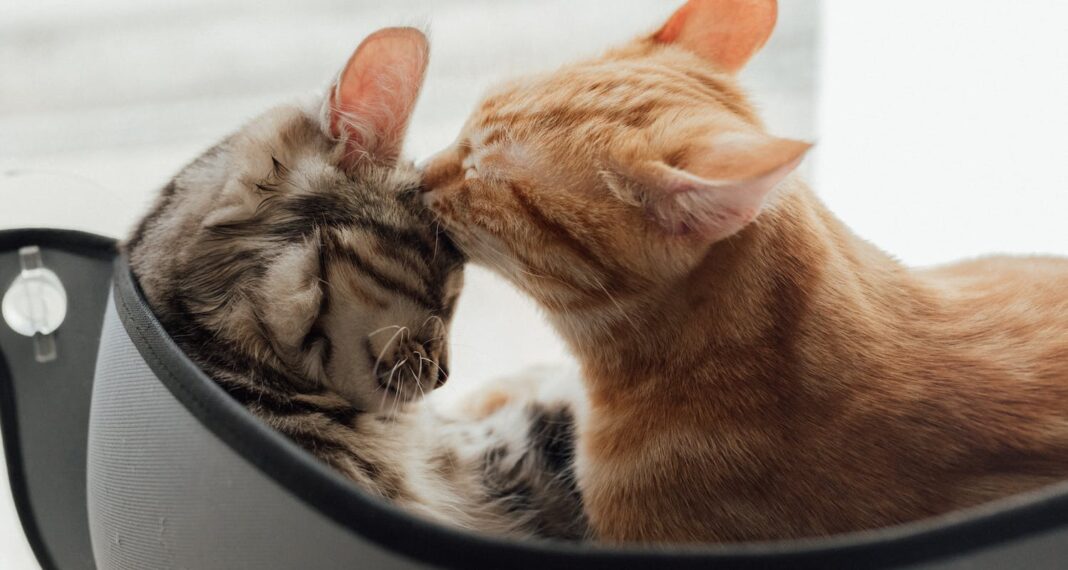No amount of articles can prepare you for raising your first cat! This is a wonderful and exciting experience that you may only have once in life. Make every moment count by having fun with your pet, feeding it delicious food, and keeping it active outside of the home. If this is your first cat, you’ll be glad you took the time to read this article and get prepared.
Be careful when treating your cat for fleas. Be sure to consult with your vet before using natural alternatives to control your cat’s fleas. Cats are very sensitive to essential oils and many herbs. Your vet will probably recommend you use a prescription flea treatment, which is usually best for cats.
Your cat might not come running when you call, but most cats enjoy cuddling on their terms and time. Cats love to have their heads and backs pet. Not all cats like their tummies rubbed so be careful. Spending quality time with your cat will make lasting memories to look back on someday.
Give your new cat some space. Moving to a new home can be stressful on a cat, especially one who is no longer a kitten. To help them adjust, give them a quiet place that they can call their own, such as a spare bathroom or laundry room. This gives them a safe space they can retreat to until they have become comfortable with exploring the whole house. Depending on the cat, this process may take a few days up to a month or more.
For a healthier, happier cat choose plain litter over scented litter. Cats like nice, clean, clumping cat litter. Scoop your cats litter box daily and change it completely every three days or so. When you change the box, wash it out with water and dish soap. Don’t waste your money on liners as cats tend to destroy them.
Keep your cat healthy and non-finicky by introducing a varied diet. Always purchase several different brands of food and rotate them. In this way, your cat will be used to trying and accepting new tastes. If one food brand goes out of business, you will always have lots of other acceptable choices to offer.
Protect your cat from choking. Be sure to dispose of poultry and fish bones safely. Wrap them in a paper or plastic bag and put them in your outdoor garbage can with the lid tightly secured. Alternately, place them in a plastic bag and freeze them until garbage pick up day.
An inexpensive rubber welcome mat helps keep cat food off your floor. This is also a great tool to keep your cat from tracking litter out of the box. Black rubber mats cost about three dollars at dollar stores. Put your cat food dish on one and your litter box on another.
If your cat is pregnant, set up a comfortable, safe place for her to have her kittens. A big cardboard box equipped with a pillow and blanket is good. Place it in the back of a closet or other out of the way place. Keep food and water dishes nearby.
Refrain from giving your cat any food that is spoiled. This can lead to indigestion and food poisoning, which can cost you a trip to the veterinarian. Always buy your food fresh from the store and be sure to check the expiration date before you feed it to your cat.
Think twice before letting your cat outside. It might not be safe for your cat to go outdoors. Your cat may pick up some fleas, or worse. Cars, people, or animals could hurt your beloved pet. If your cat really wants to go outside, let it out into a small area in your yard.
A cat’s nails can grow really quickly. They sharpen their nails by scratching on different surfaces like a scratching post. You can help avoid your cat destroying your furniture by clipping their nails often. This will help to discourage your cat from scratching at different things around your house.
You should do regular checkups of your cat between veterinarian visits. A good time to do this is when you are petting the animal. Check the entire body for things like scabs and lesions. Also look in and around the ears for any discharge, which can be a sign of ear mites. Check the cat from head to tail.
Canned food is an excellent choice for cats. Yes, dry food is cheaper, but canned food really has a lot more benefits. The water content is higher, and there is more protein and fat in the canned food. If your cat is getting older, canned food is easier to chew as well. Ask your vet, though canned food is often better for your cat.
Get your cat all the necessary vaccinations. There are a number of them and you should talk to your veterinarian about the proper schedule. Many are given at the early stages of a kitten’s development, then given annually thereafter. These vaccinations prevent such problems as feline leukemia, rabies and respiratory problems.
It might seem like a little much for an animal, but you should comb your cat’s hair as often as possible. Combing the hair helps prevent the cat from licking loose fur and building a furball to spit up later. Different cats shed at different rates and some require a lot more maintenance than others.
Your first cat is a special pet that should remain in your memories as a great time spent raising an adorable animal. Future pets will get easier to train and feed, but cats will always be a complex, confusing, messy animal. Small changes here and there help make this a unique experience.

